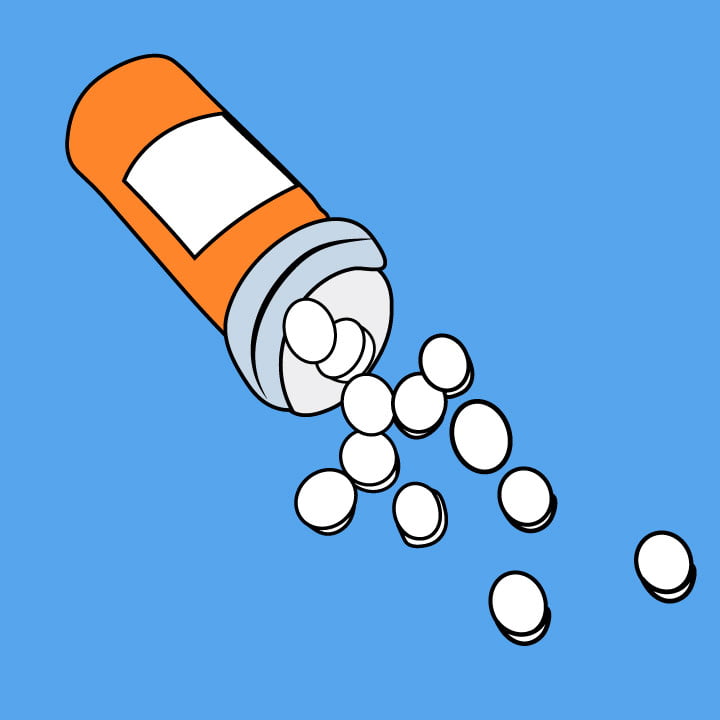Doctor Tips for Keeping your Mind Sharp and Your Mood Up
We’ve heard lots about the changes that happen to your body during menopause – hot flashes, sleepless nights, and a true knock to your libido, to name a few. But what about what happens to your mind? Cognition and Mood is the theme for this year’s National Menopause Day because the changes to your mind and mojo are definitely affected by the physical changes in your body.
But hey, it’s not all so bad! How about the top three upsides to menopause:
- No more periods
- No more PMS
- Sex for pure pleasure!
Looking at this life change positively helps with mindset, for sure. And – there are so many things you can do to take charge of this time in your life, especially when it comes to your mind and mood!
The Mind + Body Connection and Menopause
The truth is a neurological change does happen with menopause. Hormonal changes can affect the chemicals in the brain. You aren’t just imagining it when you find yourself “searching for words” more often than not – menopause can cause a delayed verbal memory. General forgetfulness and some cognitive decline are normal for many. (Although it does come back post-menopause!) For some women, the neurological changes occurring around this time can trigger emotional issues like depression and anxiety. The great news is there are things you can do to get through the peri, post, and menopausal years without losing your mind!
Fight menopause brain fog and improve your mood with five simple steps:
- Protect the Heart – You may be surprised to learn how connected your heart and mind are. As progesterone and estrogen levels decrease with menopause, cholesterol levels can increase, upping the chances of heart disease. Postmenopausal women are at an increased risk of mental deterioration due to cardiovascular disease, hypertension, and diabetes. Focus on small but mighty steps to being heart-healthy, like moderate exercise (starting with just a 10-minute walk a day), ditching bad habits like smoking and excessive drinking, and upping your healthy foods are great places to start.
- Stay Active – You already know that exercise may improve your mood, but it can also be highly beneficial for your brain. Exercise increases your neurotransmitters which pump up your endorphins – the feel-good chemicals that boost your mood. For extra endorphin boosting, invite a friend to walk with you. The friendship connection is powerful for endorphin levels too. Studies show that regular exercise changes the brain, not just cognition but also memory. (Oh, and added plus, regular exercise also boosts the libido.) And keep your mind active too. It’s the perfect time to feed your brain with stimulating hobbies to help it stay sharp – crosswords, reading, even chess!
- Establish a Sleep Routine – Hormones and hot flashes significantly impact sleep. And we don’t have to tell you, but less sleep = a bad mood, especially as we age. Good sleep is also one of the primary factors for overall good health, and studies show that varied sleep schedules worsen women’s cognition skills. It’s all about routine and sticking with it. We’ve probably all heard the basics of developing a sleep schedule: setting a consistent bedtime, limiting alcohol, putting the screens away well before bed, and so on. Try finding a mantra you can say in the middle of the night to get yourself asleep quickly and shut down the nighttime worrying. Remember how we were told to “count sheep” when we were little? There is something to that. Figure out a way to keep your mind busy and the worries away, you aren’t going to solve any problems in the middle of the night, and everything looks brighter in the morning anyway! Putting sleep as a top health priority will pay off in many ways.
- Get your Mojo Back – Your estrogen, progesterone and testosterone dip following menopause, leading to changes in sexual drive. In addition, less estrogen means less blood flow to the vagina, more dryness, and painful intercourse. Also, mood disorders and depression can cause low self-esteem, physical fatigue, lowered libido, and Anorgasmia, or trouble having an orgasm. Cliovana can help with these issues. The sound wave technology boosts the process of regenerating cells in the genitals, resulting in improved blood flow to the clitoris, which creates a long-term increase in women’s sexual responsiveness and intensity, helps with painful sex and lubrication, and increases orgasm frequency. It’s a quick and easy, entirely non-invasive treatment that creates a long-term increase in women’s sexual responsiveness and intensity.
- Be Friends with your Gynecologist – Many people in the menopausal years suffer from moodiness, anxiety, and even depression. It’s not just the hormones; some people feel sad that the childbearing years are over, and other significant mid-life changes complicate it physically and emotionally. Everyone’s journey and body are different. As uncomfortable as it may be, talk to your doctor. They have the resources and the knowledge to help you get back on track.
And… a bonus #6: Embrace this time in life! With middle age comes wisdom, unique opportunities to experience travel, go deeper in relationships, discover new hobbies, and more. We are all affected differently by our changing hormones. Every one of us going through menopause can focus on staying positive and not let menopause be a stumbling block to our happiness.
Focus on what you CAN do to get your mind and body in a better place to handle the changes you can’t control. You have the power to manage menopause and not let it rule you!
Dr. Julianne Arena is a double board certified physician from Harvard and a certified Cliovana specialist who specializes in women’s health and sexual well-being.






